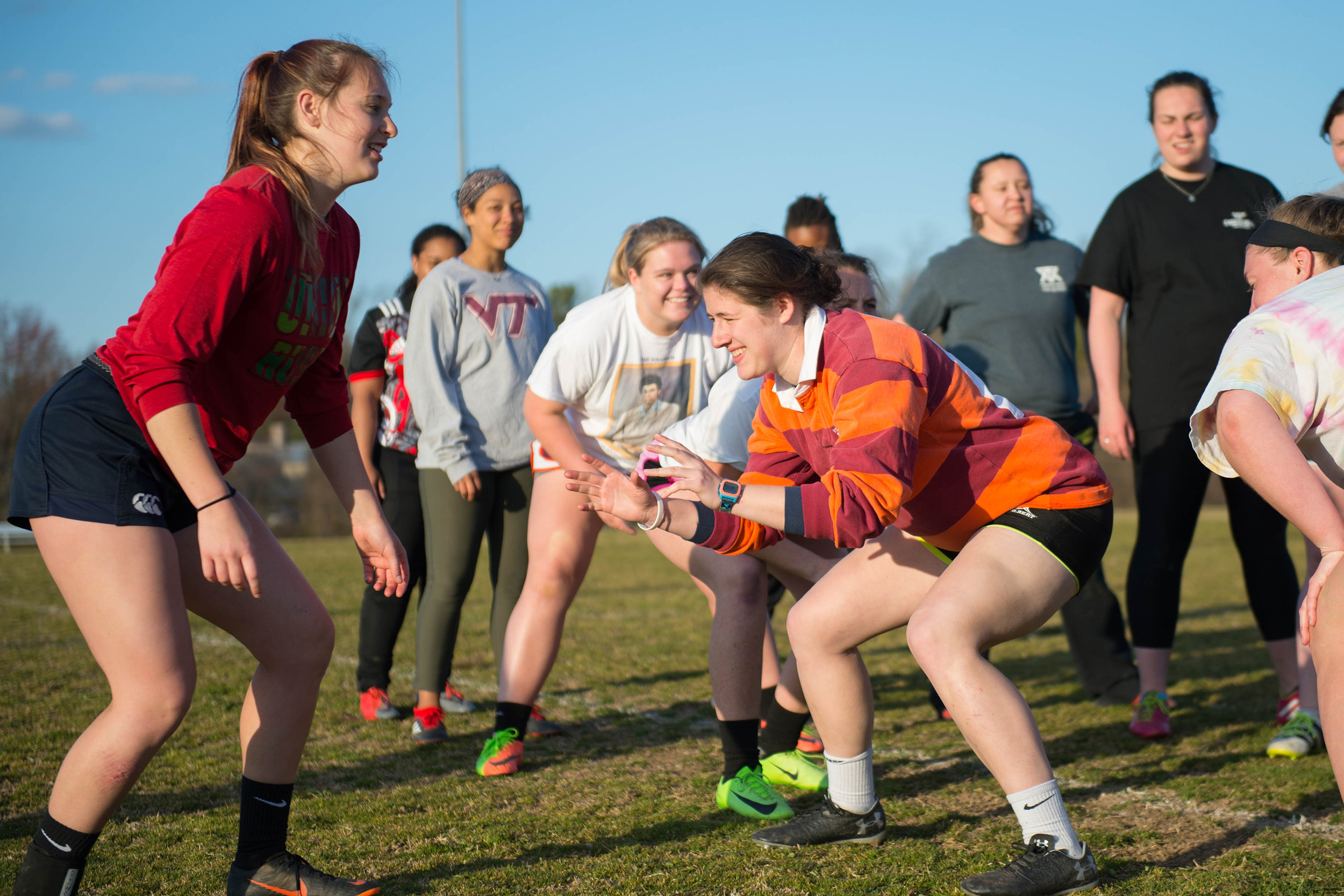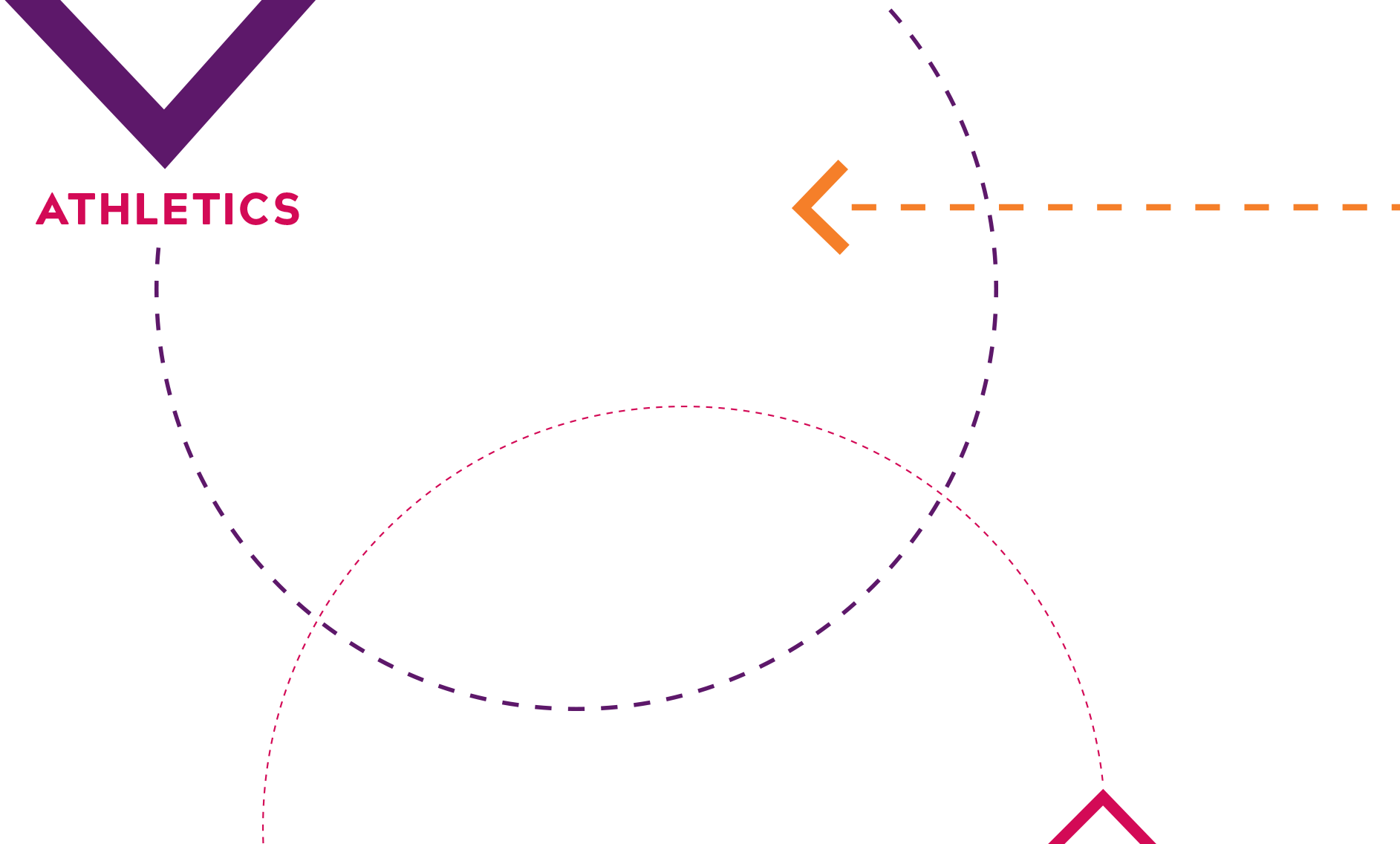CROSSING THE ADVANTAGE LINE

Amelia Griese (right) and her rugby teammates.
After a co-op experience at Walt Disney World her sophomore year, Amelia Griese ’19 realized she’d be in Blacksburg for five years to finish her major in mechanical engineering and minors in classical studies and art history, so she looked for ways to get more actively involved on campus.
She settled on sport clubs. And she picked one she had never played—rugby. “Only two on our team had played rugby before college, so everybody comes in at the same level,” Griese said.
As a senior, Griese helped lead the team to a spot in the national club rugby championship game (they lost to Brigham Young) while serving as one of four co-captains and the match secretary, a position that required her to schedule matches and arrange all travel logistics.
“It falls on the four of us to make this team work, which can be a handful when we’re full-time students and we’re trying to play the game,” Griese said.
The skills she honed helped her land a job after graduation as a production supervisor for Anheuser-Busch.
“It’s easy to fix a machine, but people are more dynamic,” Griese said. “Rugby’s given me great experience dealing with people. It also gave me a lot of real-world challenges learning to manage my time and prioritize. It’s a lot of work, but it’s very rewarding.”
Julie Rhoads, Virginia Tech assistant director for sport clubs, and Megan Hughes, associate director for administrative services in Recreational Sports, see those rewards every day. Their office helps with guidance and logistics, but it’s the 1,100 student-athletes who participate on one of the 29 different teams at Virginia Tech who make the decisions and run the teams.
“We know that people who are involved in activities like sport clubs have a better sense of belonging at the university, and they feel more supported,” Hughes said. “The grittiness required can translate to other areas, like in the academic realm.”
Rhoads was president of her college’s cheerleading club team, which helped lead her to her current career. “It was ‘Oh, I can do this in a real-world setting!’ It’s kind of awesome,” she said.
Unlike varsity student-athletes, many of whom get at least a partial scholarship, sports club participants pay to play, with annual dues ranging from $50 to $2,500 (rugby dues are $100). Teams do get a stipend from the university, but they also raise money for travel, meals, and lodging.
Participants also find the training and conditioning time to be competitive. Rhoads points out that the women’s field hockey team won a national championship in 2018, and 18 of 29 clubs went to their respective national tournaments. And athletes in lesser known sports, such as rugby, fencing, and cricket, get a kick out of just introducing more people to their passion.
“What I was looking for in team sports is accountability to other people and building relationships,” Griese said. “I can walk on campus and there’s at least 50 people I know really well.”
Club sports has also exposed rugby team members to the true meaning of Ut Prosim. In 2015 during a team retreat, rugby player Abbey Coleman’s mother died of the neurodegenerative disease ALS, also known as Lou Gehrig’s disease.
“The players really wanted to rally around her and find a way that we could give back and support people who have been affected by ALS,” Griese said. The team started the Knockout ALS Tournament in 2016, raising several thousand dollars for the DC/MD/VA ALS Chapter. Women’s lacrosse joined the effort this year.
